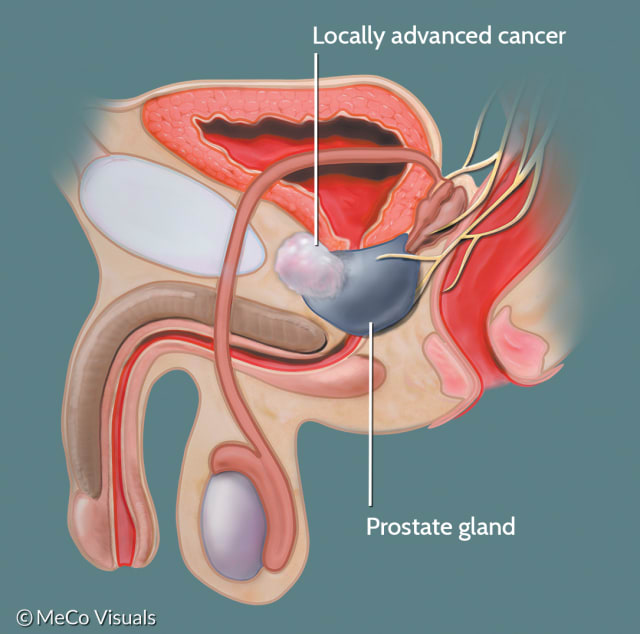The Hidden Link Between Sleep and Weight Loss

The Importance of Quality Sleep for Weight Loss
Sleep is often overlooked in the realm of weight loss, but its importance cannot be overstated. Quality sleep is not only crucial for maintaining overall health and well-being, but it also plays a significant role in weight management. Research has shown that inadequate sleep can disrupt the intricate balance of hormones in the body, leading to weight gain and a greater risk of obesity.
One hormone affected by sleep deprivation is leptin, which is responsible for regulating hunger and satiety. When we do not get enough sleep, leptin levels decrease, leading to increased feelings of hunger and a greater inclination to overeat. On the other hand, sleep deprivation also triggers an increase in ghrelin levels, a hormone that stimulates appetite. This hormonal imbalance can create a vicious cycle, making it harder to resist cravings and maintain a healthy eating pattern.
Studies have consistently shown a clear link between sleep and weight management. One study found that individuals who slept less than six hours per night were at a significantly higher risk of weight gain and obesity compared to those who slept between seven to eight hours. Another study observed that insufficient sleep led to decreased insulin sensitivity, which can disrupt blood sugar regulation and increase the risk of developing diabetes.
It is evident that quality sleep is vital for weight loss and overall health. By prioritizing sleep and making it a consistent part of our daily routines, we can positively impact our hormones, metabolism, and appetite control. In the next sections, we will delve deeper into the various ways sleep influences food cravings, metabolism, insulin sensitivity, and explore strategies for improving sleep quality to support weight loss efforts.
Learn some sleep and weight loss facts including how you can leverage sleep to improve your health.
The Impact of Sleep Deprivation on Weight Gain

Sleep deprivation can have a significant impact on weight gain. Numerous studies have shown that inadequate sleep can disrupt our body’s normal metabolic processes, leading to increased weight gain and a higher risk of obesity. Researchers have found that partial sleep deprivation alters the regulation of appetite hormones, causing an increase in hunger and cravings for high-calorie foods.
One of the key hormones affected by sleep deprivation is ghrelin, commonly known as the “hunger hormone.” Ghrelin levels have been shown to rise when sleep duration is shortened, making individuals feel more hungry and increasing their desire for sugary and fatty foods. On the other hand, inadequate sleep has been found to reduce levels of leptin, the hormone responsible for signaling fullness and suppressing appetite. As a result, sleep-deprived individuals often struggle with controlling their food intake and are more likely to overeat, leading to weight gain over time.
In addition to the hormonal changes, lack of sleep can also affect our brain’s reward system, making unhealthy foods more appealing. Studies have shown that sleep deprivation affects the areas of the brain associated with pleasure and reward, leading to a heightened desire for calorie-dense foods. This combination of increased hunger and a heightened response to unhealthy food cues can contribute to weight gain and hinder weight loss efforts.
It is important to recognize the impact of sleep deprivation on weight gain and take steps to prioritize and improve sleep quality as part of a comprehensive weight management program. By adopting healthy sleep habits and ensuring an adequate amount of sleep, individuals can better regulate their appetite and food choices, promoting weight loss and overall well-being.
Understanding the Role of Hormones in Sleep and Weight Management

Hormones play a crucial role in regulating various processes in our body, including sleep and weight management. One such hormone is melatonin, often referred to as the “sleep hormone.” Melatonin is produced by the pineal gland in response to darkness and helps to regulate our sleep-wake cycle. Studies have shown that melatonin levels are closely linked to the quality and duration of sleep. Inadequate production or disruption of melatonin can lead to sleep disturbances, which in turn can affect weight management.
Additionally, another hormone called leptin also plays a significant role in sleep and weight management. Leptin is responsible for signaling our brain when we are full and should stop eating. However, lack of sleep has been found to disrupt the production and function of leptin, leading to increased appetite and overeating. In fact, research has shown that sleep-deprived individuals have higher levels of ghrelin, a hormone that stimulates hunger, and lower levels of leptin, resulting in a vicious cycle of increased appetite and decreased satiety.
Understanding the intricate relationship between hormones and sleep can provide valuable insights into effective weight management strategies. By prioritizing sleep and addressing any underlying sleep disturbances, we can better regulate hormone levels in the body. This, in turn, may help reduce cravings, improve appetite control, and support overall weight management efforts.
The Link Between Lack of Sleep and Increased Appetite
Inadequate sleep has been shown to have a significant impact on appetite regulation, leading to an increase in food intake. When we don’t get enough sleep, our body’s hormonal balance is disrupted, affecting hunger and satiety cues. One key hormone involved in this process is ghrelin, often referred to as the “hunger hormone.” Research suggests that sleep deprivation can result in elevated ghrelin levels, which can lead to an increase in appetite and food cravings.
Additionally, lack of sleep has been found to affect another important hormone called leptin. Leptin is responsible for signaling to the brain when we’re full and should stop eating. Unfortunately, sleep deprivation has been associated with decreased leptin levels, which can disrupt this signaling process and result in an inability to accurately perceive fullness. As a result, individuals who are sleep-deprived may consume more calories throughout the day, leading to weight gain over time.
Several studies have provided evidence supporting the link between inadequate sleep and increased appetite. For example, a study published in the American Journal of Clinical Nutrition found that individuals who slept only four hours per night had significantly higher levels of ghrelin and lower levels of leptin compared to those who slept for eight hours. This hormonal imbalance led to increased hunger and cravings for high-calorie, carbohydrate-rich foods.
To better understand the relationship between sleep and appetite, researchers have also conducted studies using functional magnetic resonance imaging (fMRI) to examine brain activity in response to food stimuli. In one such study published in Nature Communications, sleep-deprived participants exhibited greater activation in the areas of the brain associated with reward and craving when viewing images of high-calorie foods, compared to well-rested participants.
In conclusion, it is clear that lack of sleep can significantly contribute to increased appetite and food consumption. The disruption of hormone levels, specifically ghrelin and leptin, plays a crucial role in this process. Understanding and addressing the link between sleep and appetite regulation is vital for individuals aiming to manage their weight effectively.
How Sleep Influences Food Cravings and Unhealthy Eating Patterns
During sleep, our body undergoes a complex series of physiological processes that help maintain overall health and well-being. However, research has shown that insufficient sleep can have a significant impact on our eating patterns and cravings, ultimately leading to unhealthy dietary choices and weight gain.
One key mechanism through which sleep influences food cravings is the regulation of hormones involved in appetite control. Specifically, sleep deprivation has been found to increase levels of ghrelin, a hormone that stimulates appetite, while simultaneously reducing levels of leptin, a hormone that signals fullness and suppresses appetite. This hormonal imbalance can lead to an increased desire for high-calorie, sugary, and fatty foods, contributing to weight gain and an unhealthy diet.
Additionally, lack of sleep disrupts brain function and impairs decision-making processes, making it more difficult to resist tempting food choices. Studies have shown that sleep-deprived individuals are more likely to give in to cravings, particularly for foods that are rich in carbohydrates and fats. Furthermore, inadequate sleep can also affect the reward centers in the brain, increasing the desire for pleasurable and indulgent food options.
It is evident that sleep plays a crucial role in the regulation of appetite and food cravings. By understanding the impact of sleep on our eating patterns, we can adopt strategies to improve sleep quality and duration, ultimately supporting our weight loss efforts.
The Connection Between Sleep and Metabolism

Sleep plays a crucial role in regulating metabolism and maintaining a healthy body weight. Numerous scientific studies have pointed to a strong connection between sleep duration and metabolism, showing that inadequate or poor-quality sleep can have a negative impact on metabolic processes. When we don’t get enough sleep, our body’s ability to regulate blood sugar and insulin levels becomes impaired. This can lead to insulin resistance, where the body’s cells are less responsive to insulin and have trouble efficiently using glucose for energy. As a result, excess glucose can accumulate in the bloodstream, contributing to weight gain and an increased risk of developing type 2 diabetes.
Not only does sleep deprivation affect insulin sensitivity, but it also disrupts the balance of hunger-regulating hormones in the body. The hormones leptin and ghrelin play a key role in regulating appetite and satiety. Leptin, produced by fat cells, signals to the brain when we are full and should stop eating. Ghrelin, on the other hand, stimulates hunger and increases food intake. Lack of sleep can disrupt the balance of these hormones, leading to increased ghrelin levels and decreased leptin levels. This hormonal imbalance can result in heightened appetite, cravings for high-calorie foods, and a tendency to overeat, ultimately contributing to weight gain and difficulties in managing weight effectively.
The Effect of Sleep on Insulin Sensitivity and Blood Sugar Regulation
Sleep plays a crucial role in maintaining the delicate balance of our body’s hormones, including those involved in insulin sensitivity and blood sugar regulation. When we consistently get adequate and restful sleep, our body functions optimally, allowing for efficient glucose metabolism and insulin action.
Research has shown that sleep deprivation can disrupt the delicate balance of insulin sensitivity and blood sugar regulation in the body, leading to a higher risk of developing insulin resistance and impaired glucose tolerance. A study published in the American Journal of Clinical Nutrition found that just one night of partial sleep deprivation resulted in reduced insulin sensitivity and an increase in blood sugar levels in healthy individuals.
Moreover, other research has shown that chronic sleep deprivation is associated with a higher risk of developing type 2 diabetes. A study published in Diabetes Care found that individuals who consistently had less than six hours of sleep per night had a significantly increased risk of developing impaired glucose tolerance and diabetes compared to those who consistently slept seven to eight hours.
In conclusion, the effect of sleep on insulin sensitivity and blood sugar regulation is undeniable. To maintain optimal metabolic health, it is crucial to prioritize sleep and ensure we are getting the recommended seven to eight hours of uninterrupted sleep each night. By doing so, we can support our body’s delicate hormonal balance and reduce the risk of developing insulin resistance and impaired glucose tolerance.
The Relationship Between Sleep and Leptin, Ghrelin, and Cortisol Levels
Leptin, ghrelin, and cortisol are important hormones that play a significant role in sleep and weight management. Leptin is responsible for regulating appetite and metabolism, while ghrelin is known as the “hunger hormone” as it stimulates appetite. Cortisol, commonly referred to as the “stress hormone,” helps to regulate glucose metabolism and energy production.
Research has shown that insufficient sleep can disrupt the balance of these hormones, leading to an increased risk of weight gain and obesity. Sleep deprivation has been found to decrease leptin levels, which can result in decreased feelings of fullness and increased appetite. On the other hand, ghrelin levels are found to increase with sleep deprivation, leading to an enhanced craving for high-calorie and carbohydrate-rich foods.
Moreover, inadequate sleep is also associated with elevated cortisol levels. Chronic elevation of cortisol can lead to insulin resistance, impaired glucose metabolism, and increased fat storage, all of which contribute to weight gain. These hormonal imbalances caused by lack of sleep can create a vicious cycle, making weight management more challenging.
Understanding the relationship between sleep and these hormones is crucial for effective weight management strategies. By prioritizing quality sleep, individuals can help regulate the production of leptin, ghrelin, and cortisol, which in turn can support healthy eating patterns, reduce cravings, and improve metabolic function.
The Role of Sleep in Muscle Recovery and Exercise Performance
Sleep plays a vital role in muscle recovery and exercise performance. During sleep, our body undergoes several important processes that contribute to muscle repair and growth. One of these processes is the release of growth hormone, which helps stimulate muscle tissue regeneration and repair. Research has shown that sleep deprivation can have a negative impact on growth hormone secretion, compromising muscle recovery and potentially leading to impaired exercise performance.
In addition to growth hormone, sleep is also important for protein synthesis, a key process for muscle repair and growth. Adequate sleep allows the body to efficiently utilize the proteins we consume through our diet, promoting the development of lean muscle mass. Furthermore, sleep deprivation can lead to increased levels of cortisol, a stress hormone that can have catabolic effects on muscle tissue. This can result in muscle breakdown and hinder muscle recovery after exercise.
To optimize muscle recovery and exercise performance, it is essential to prioritize sleep. Aim for 7-9 hours of quality sleep each night to allow your body ample time to go through the necessary processes for muscle repair and growth. Establishing a consistent sleep routine and creating a sleep-supportive environment can also contribute to better sleep quality. Additionally, strategies such as avoiding caffeine and stimulating activities before bedtime, practicing relaxation techniques, and ensuring a comfortable sleep environment can further enhance the benefits of sleep for muscle recovery and exercise performance.
It is important to note that individual sleep needs may vary, and it is always beneficial to consult with a healthcare professional or a sleep specialist to determine the optimal sleep duration and strategies to support muscle recovery and exercise performance. Prioritizing sleep can provide significant advantages to achieving fitness goals and maintaining overall physical health.
How Sleep Duration and Quality Affect Weight Loss Efforts
Getting enough sleep is an often overlooked but crucial factor in achieving successful weight loss. Both the duration and quality of sleep can significantly impact our weight loss efforts. Research has shown that inadequate sleep can interfere with hormone regulation, leading to increased appetite and cravings for unhealthy foods.
One study published in the American Journal of Clinical Nutrition found that individuals who slept for shorter durations had higher levels of ghrelin, a hormone responsible for stimulating hunger. At the same time, they had lower levels of leptin, a hormone responsible for signaling fullness and satiety. This hormonal imbalance can lead to increased appetite and a greater likelihood of overeating.
Additionally, poor quality sleep can negatively affect our motivation to engage in physical activity. Sleep deprivation can result in decreased energy levels and an increased perception of effort during exercise, making it more difficult to adhere to a regular exercise routine. Moreover, inadequate sleep can impair muscle recovery and repair, further hindering our weight loss efforts.
To optimize sleep duration and quality, it is recommended to aim for 7-9 hours of sleep per night for adults. Establishing a consistent sleep schedule, practicing relaxation techniques before bed, and creating a sleep-friendly environment can also contribute to better sleep quality. Prioritizing sleep alongside a balanced diet and regular exercise can significantly support weight loss efforts for long-term success.
The Link Between Sleep Disorders and Weight Management Challenges
Sleep disorders can have a significant impact on one’s ability to manage their weight effectively. Research has found a strong connection between sleep disorders, such as insomnia or sleep apnea, and weight management challenges. A study published in the American Journal of Clinical Nutrition showed that individuals with sleep apnea were more likely to develop obesity over time, compared to those without the disorder.
One reason for this link is the disruption of sleep patterns and the subsequent effect on hormones that regulate appetite and metabolism. Lack of sleep can lead to an imbalance in hormones such as leptin and ghrelin, which are responsible for controlling hunger and satiety. When these hormones are out of balance, individuals may experience increased appetite and cravings for unhealthy foods, leading to overeating and weight gain. Additionally, chronic sleep deprivation can affect insulin sensitivity and blood sugar regulation, which can contribute to weight management challenges and an increased risk of developing conditions such as type 2 diabetes. In order to effectively manage weight and promote overall health, it is crucial to address sleep disorders and prioritize quality sleep.
Strategies for Improving Sleep Quality to Support Weight Loss
One of the key strategies for improving sleep quality to support weight loss is establishing a consistent sleep schedule. Going to bed and waking up at the same time every day helps regulate your body’s internal clock, promoting better sleep patterns. This regularity helps synchronize your biological functions, including metabolism and hormone production, which play a crucial role in weight management.
Another effective strategy is creating a relaxing sleep environment. Make sure your bedroom is cool, dark, and quiet, as these conditions can enhance the quality of sleep. Consider using blackout curtains, earplugs, or white noise machines if necessary. Additionally, it is important to limit exposure to electronic devices before bedtime, as the blue light emitted by screens can disrupt sleep patterns. Instead, engage in relaxing activities such as reading or practicing relaxation techniques like deep breathing or meditation to prepare your mind and body for restful sleep.
The Importance of Establishing Consistent Sleep Patterns for Weight Management
Establishing consistent sleep patterns is crucial for effective weight management. Adequate sleep provides the body with the necessary time to rest, repair, and rejuvenate, contributing to overall health and well-being. When it comes to weight management, quality sleep plays a vital role in regulating various physiological processes related to appetite, metabolism, and hormone balance.
Research has shown that individuals who consistently get enough sleep tend to have better control over their weight. Lack of sleep can disrupt the balance of important hormones such as leptin, ghrelin, and cortisol, which are involved in appetite regulation. Leptin, commonly referred to as the “satiety hormone,” signals to the brain when you’re full, helping to reduce overeating. Ghrelin, on the other hand, stimulates hunger and promotes overeating. When sleep is inadequate, levels of leptin decrease, while levels of ghrelin increase, leading to an increased appetite and a higher likelihood of consuming excess calories.
Moreover, sleep deprivation can also have a direct impact on metabolism and insulin sensitivity. Inadequate sleep has been found to decrease insulin sensitivity, leading to difficulties in regulating blood sugar levels. This can potentially contribute to weight gain and increase the risk of developing conditions such as type 2 diabetes. Additionally, sleep deprivation can disrupt the body’s circadian rhythms, which can further affect metabolism and energy balance.
Overall, establishing consistent sleep patterns is crucial for weight management. Adequate sleep not only helps regulate appetite, but it also supports optimal metabolism and hormone balance. By prioritizing quality sleep, individuals can improve their chances of successfully managing their weight and promoting overall health.
What is the importance of quality sleep for weight loss?
Quality sleep is important for weight loss because it helps regulate hormones that control appetite and metabolism, reduces food cravings, and improves insulin sensitivity.
How does sleep deprivation impact weight gain?
Sleep deprivation can lead to weight gain as it disrupts hormones like leptin and ghrelin, which regulate hunger and satiety, and increases appetite and cravings for unhealthy foods.
What is the role of hormones in sleep and weight management?
Hormones play a crucial role in sleep and weight management as they regulate hunger, satiety, metabolism, and energy balance.
How does lack of sleep contribute to increased appetite?
Lack of sleep disrupts the balance of hormones that control appetite, leading to an increase in appetite and a higher likelihood of overeating.
How does sleep influence food cravings and unhealthy eating patterns?
Sleep deprivation can increase cravings for high-calorie and sugary foods, leading to unhealthy eating patterns and weight gain.
What is the connection between sleep and metabolism?
Sleep affects metabolism by regulating the production of hormones that control energy balance, appetite, and calorie burning.
How does sleep affect insulin sensitivity and blood sugar regulation?
Sufficient sleep improves insulin sensitivity, which helps regulate blood sugar levels and reduces the risk of insulin resistance and diabetes.
What is the relationship between sleep and leptin, ghrelin, and cortisol levels?
Sleep deprivation disrupts the levels of hormones like leptin, ghrelin, and cortisol, which can lead to increased appetite, reduced feelings of fullness, and increased stress levels.
How does sleep play a role in muscle recovery and exercise performance?
During sleep, the body repairs and rebuilds muscles, enhances muscle recovery, and improves exercise performance.
How does sleep duration and quality affect weight loss efforts?
Adequate sleep duration and quality are important for weight loss efforts as they support healthy hormone balance, reduce cravings, and improve energy levels for physical activity.
What is the link between sleep disorders and weight management challenges?
Sleep disorders, such as sleep apnea or insomnia, can interfere with quality sleep and disrupt hormone balance, leading to weight management challenges and difficulties in losing weight.
What are some strategies for improving sleep quality to support weight loss?
Strategies for improving sleep quality include maintaining a consistent sleep schedule, creating a relaxing bedtime routine, avoiding stimulating activities before bed, and optimizing the sleep environment.
Why is it important to establish consistent sleep patterns for weight management?
Establishing consistent sleep patterns is important for weight management because it helps regulate hormones, reduces cravings, improves metabolism, supports muscle recovery, and enhances overall weight loss efforts.






